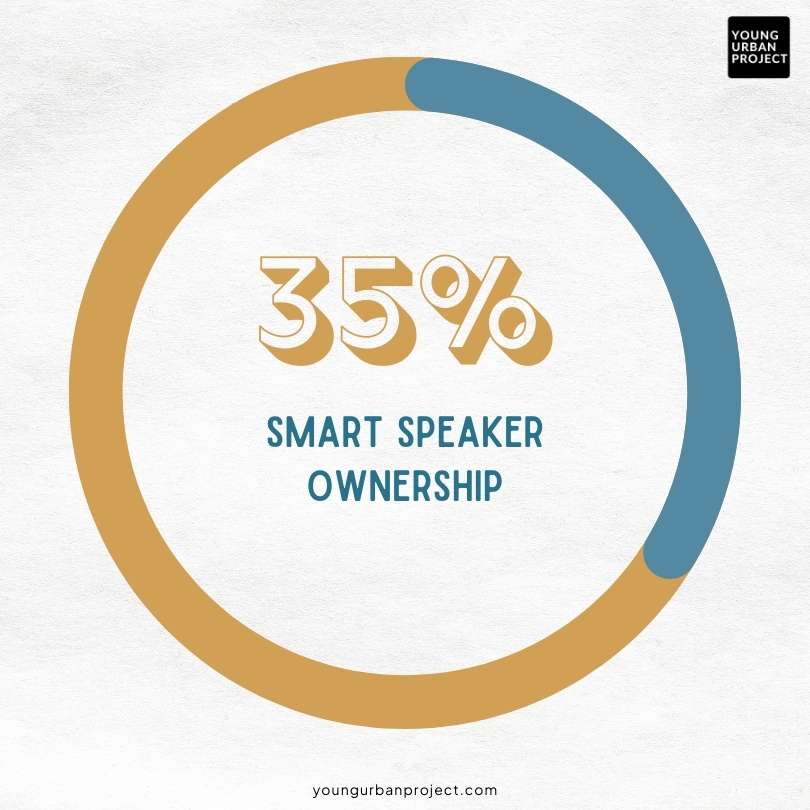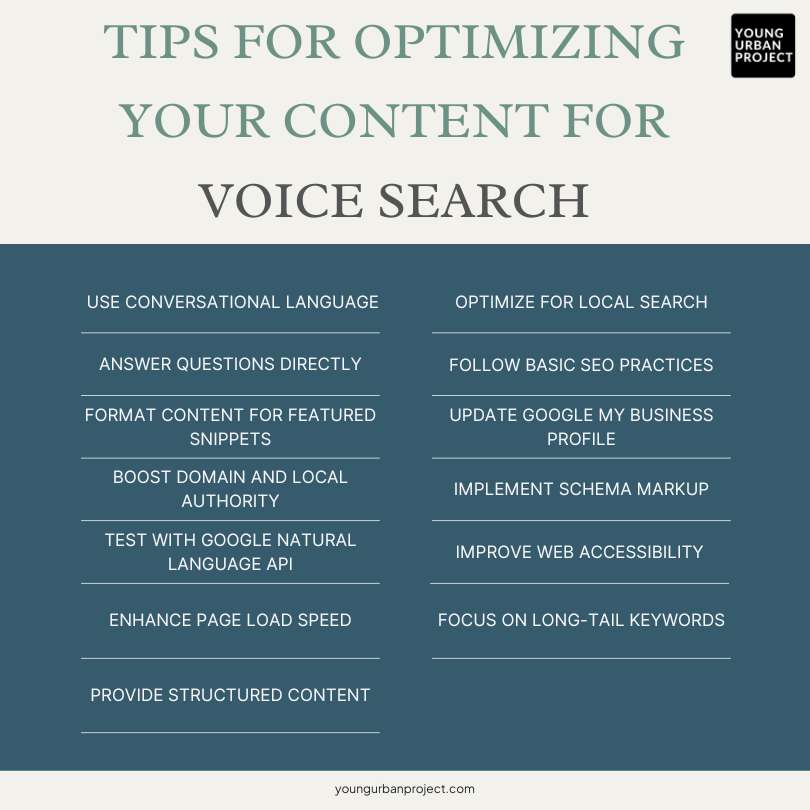Did you know that approximately 20.5% of people worldwide use voice search? Voice Search Optimization is now super important because tools like Siri, Alexa, and Google Assistant are changing how people search. More and more people are using voice commands because it’s easy and fast. This means businesses need to keep up to stay visible online.
Table of Contents
In this blog, we’ll talk about how voice search is growing, why it’s important today, and how you can make your content work better for voice searches. Stay ahead and make sure your business doesn’t get left behind in this voice-first world.
What is Voice Search?
Voice search is a way to search the internet using your voice instead of typing. It uses special technology to understand what you say and find answers quickly. Popular voice assistants like Siri, Google Assistant, and Alexa help people use voice search on their phones, smart speakers, and other devices.
People use voice search to do many things, like setting reminders, finding stores nearby, getting weather updates, or even buying things online. As smartphones and smart speakers become more common, voice search is becoming a popular and easy way for people to find information without using their hands.
What is Voice Search Optimization?
Voice search optimization is the process of making your website or content easier for voice assistants to find and understand. When people use voice search, they talk naturally, so your content should sound like how people speak. This means using longer phrases or questions, like “Where’s the closest coffee shop?” instead of just “coffee shop.”
You must also answer common questions clearly so voice assistants can quickly grab the right information. Make sure your website works well on phones and smart speakers since most voice searches happen on these devices. Also, focus on local searches because many people use voice search to find things nearby, like a restaurant or store.
By doing this, you help search engines understand your website better, making it more likely to appear in voice search results. This can bring more people to your site and help you reach users who rely on voice assistants.
Also read: Types of Keywords in SEO
Why Voice Search Optimization Is Essential
1. Rapid Growth in Smart Speaker Ownership
- Smart speaker adoption has surged, with 35% of U.S. adults owning at least one smart speaker. This figure has steadily risen, reflecting the increasing dependence on voice-activated technology.
- As more households integrate smart assistants like Alexa and Google Home, businesses must ensure their content is optimized for voice search to remain accessible.

2. Voice Search Dominates Local Queries
- 72% of smart speaker owners use voice search to find local business information, making local SEO essential for brands.
- Voice searches are often action-driven, meaning users are ready to visit a store or make a purchase, creating high-conversion opportunities.
3. Consumer Preference for Hands-Free Interactions
- 31% of global smartphone users rely on voice search weekly, preferring its speed and convenience over traditional text-based searches.
- Businesses that optimize for conversational queries and long-tail keywords can better align with user behavior.
4. The Rise of Voice Commerce
- The voice commerce market has experienced rapid growth in recent years. It is expected to increase from $116.83 billion in 2024 to $151.39 billion in 2025, reflecting a compound annual growth rate (CAGR) of 29.6%.
- Brands investing in voice search optimization can tap into this growing market and enhance customer engagement.

Source: The Business Research Company
5. Increased Use of Voice Search for Shopping
- Approximately 20% of consumers have used voice search to make a purchase, indicating a growing trend in voice-enabled shopping.
- This behavior underscores the need for businesses to optimize their e-commerce platforms for voice queries to capture this segment of shoppers.
Also read: Types of SEO (Search Engine Optimization)
Tips for Voice Search Optimization

1. Use Conversational Language
Voice search queries tend to be more casual and conversational. Rather than concentrating solely on short keywords, consider how people talk. Phrases like “What’s the best way to get to the closest park?” are more commonly used than just “closest park.”
Make sure your content provides answers that sound natural, as voice assistants favor content that reflects the way people speak in everyday conversations.
2. Optimize for Local Search
Voice searches are often about finding things nearby, so make sure your business’s name, address, and phone number (NAP) are listed clearly on your website and Google My Business.
This will help voice assistants give people the right details like your location, working hours, and reviews. Being easy to find on local searches can bring more customers to your business.
3. Answer Questions Directly
Voice search is used to get quick answers, so make your content easy to understand and straight to the point. People ask questions and voice assistants answer fast.
To help with this, use simple bullet points or numbered lists to answer common questions. This can make your website more likely to show up as the main answer when someone asks a question.
4. Follow Basic SEO Practices
Even with voice search, you still need to follow basic SEO rules. Use the right keywords in your content, make sure your site has clear descriptions, and check that your website works well on mobile phones. A website that loads quickly and is easy to use will rank higher in both voice and text search results.
5. Format Content for Featured Snippets
Voice assistants often take answers from featured snippets that show up at the top of search results. To help with this, format your content to be easy for voice assistants to grab.
Break your content into bullet points, numbered lists, and short paragraphs. This format improves your chances of being featured in voice search results.
Also read: What is a Backlink Profile?
6. Update Google My Business Profile
Make sure your Google My Business profile is up to date with all the right information, like your business hours, address, and contact details. Having positive reviews can also improve your profile’s ranking.
Voice search uses this information to help users find local businesses easily, so make sure your business looks good and is easy to find.
7. Boost Domain and Local Authority
Websites that are trusted and popular have a better chance of appearing in voice search results. To boost your domain authority, get quality backlinks from trusted websites.
For local authority, focus on getting reviews or mentions from local websites. This helps build trust, making it easier for voice assistants to recommend your site in search results.
8. Implement Schema Markup
Schema markup is a special code that helps search engines understand your content better. It helps search engines pick up important details like events, reviews, and contact information.
Adding schema to your website can improve your chances of appearing in rich snippets, which voice assistants often use to answer questions quickly.
9. Test with Google Natural Language API
Google’s Natural Language API is a tool that helps you check how Google understands your content. It breaks down your text and gives you advice on how to make it clearer and more natural for voice search.
This tool allows you to modify your content so that voice assistants can better understand and answer user queries.
10. Improve Web Accessibility
Voice search is used by everyone, including people with disabilities, so make sure your website is easy for all users to access. Add features like text-to-speech, use simple fonts that are easy to read, and include alt text for images. This ensures that voice assistants can process your content correctly for all users, improving your chances of showing up in voice search results.
11. Enhance Page Load Speed
If your website takes too long to load, users might leave, especially people using voice search who want quick answers. To make your site faster, you can reduce the size of your images, get rid of extra plugins, and simplify your website’s code.
A fast website improves the user experience and helps you rank higher in voice search results.
12. Focus on Long-Tail Keywords
Voice search queries are typically longer and more precise. Instead of short keywords, focus on the full phrases people would say. For example, instead of just “best pizza,” try “where can I find the best pizza near me?” This increases the chances of your content aligning with voice search queries and appearing in search results.
13. Provide Structured Content
Make sure your content is easy to read and organized. Use clear headings and bullet points to break up the information. This makes it easier for both search engines and voice assistants to understand your content.
Structured content makes it easier for voice search tools to find the right answers quickly, improving your chances of being picked up in voice search results.
Also read: How to Create Backlinks for a New Website
Conclusion
Voice search is becoming a big part of how people use the internet, so it’s clear that it’s here to stay. As more people use smart speakers and phones for voice searches, businesses need to adjust their content. To rank well in voice search, use simple, everyday language, answer questions directly, and focus on local SEO. Adding schema markup, optimizing for featured snippets, and improving your website’s speed are easy ways to make sure people can find you through voice search.
As technology keeps improving, staying updated with voice search methods will help you stay ahead. Investing in voice search now ensures your business stays visible and easy to find. This will help you meet the changing needs of users and keep growing in a world where voice search is used more and more.
Also read: All Advantages and Disadvantages of SEO
FAQs: Voice Search Optimization
1. What is Voice Search Optimization?
Voice search optimization is about making your website easy to find when people use voice commands (like talking to Siri or Alexa). You do this by writing content that sounds like how people talk, answering common questions, and making sure your site works well for local searches. The goal is to help voice assistants find and share your content quickly.
2. Why is Voice Search Important for SEO?
More people are using voice search now (like asking their phone or smart speaker for help). If you want your website to show up in these searches, you need to make your content sound natural, like how people speak. This helps more people find you easily.
3. How can I find voice search keywords?
Think about how people talk when they ask questions out loud. Use tools like Google Keyword Planner or Answer the Public to find longer, more natural phrases (like “Where’s the best pizza near me?”). Focus on questions and phrases people might say, not just type.
4. Is Voice Search Different from Regular SEO?
Yes! Regular SEO is about typing short keywords (like “best pizza”). Voice search is about full sentences and questions (like “Where can I find the best pizza near me?”). Voice search also likes quick answers and local results, so your content needs to match that.
5. How Can I Track if Voice Search Optimization is Working?
Use tools like Google Analytics or Google Search Console to check your website traffic and see if more people are finding you through voice searches. You can also see if your site shows up in featured snippets (those quick answers at the top of search results), which are often used in voice searches.
6. What’s the Future of Voice Search?
Voice search is growing fast! More people are using smart speakers and voice assistants, and the technology is getting better. In the future, businesses will need to focus on creating content that sounds natural and answers questions directly. If you adapt to this now, you’ll stay ahead.
7. How Does Voice Search Change SEO?
Voice search changes SEO because it focuses on quick, direct answers. Voice assistants like to pull information from featured snippets or local results. If your content is easy to understand, answers questions, and works well for local searches, you’re more likely to show up in voice search results.

